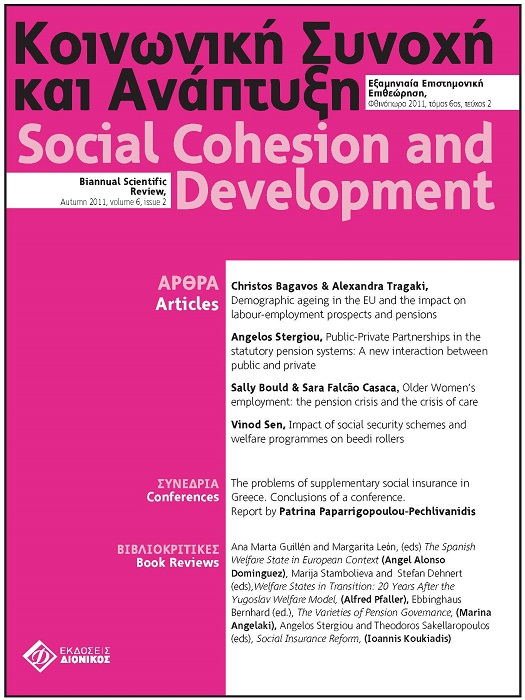Older Women’s employment: the pension crisis and the crisis of care

Abstract
This paper explores the employment figures
for older women, aged 55-64 in 14 European
Union (EU) countries, with attention to the
kind of support which is available to older
working women caring for family members
in need. There is a diversity of employment
behavior for older women as well as services
to assist them in caring for older family
members but the current policies on “active
aging” and the gender neutral approach to
pension reform does not take into account
the unpaid work of caregiving. Where older
women are typically employed during these
later years in the Nordic countries, there
are a range of supports to assist them with
caring for family members. In contexts
where the state provision of eldercare
facilities is weak if the adult daughters are
now expected to work, who will care for the
very old parents?
Article Details
- How to Cite
-
Bould, S., & Falsao Casaca, S. (2016). Older Women’s employment: the pension crisis and the crisis of care. Social Cohesion and Development, 6(2), 117–131. https://doi.org/10.12681/scad.8963
- Issue
- Vol. 6 No. 2 (2011)
- Section
- Articles

This work is licensed under a Creative Commons Attribution-NonCommercial-ShareAlike 4.0 International License.
Authors who publish with this journal agree to the following terms:
- Authors retain copyright and grant the journal right of first publication with the work simultaneously licensed under a Creative Commons Attribution Non-Commercial License that allows others to share the work with an acknowledgement of the work's authorship and initial publication in this journal.
- Authors are able to enter into separate, additional contractual arrangements for the non-exclusive distribution of the journal's published version of the work (e.g. post it to an institutional repository or publish it in a book), with an acknowledgement of its initial publication in this journal.
- Authors are permitted and encouraged to post their work online (preferably in institutional repositories or on their website) prior to and during the submission process, as it can lead to productive exchanges, as well as earlier and greater citation of published work (See The Effect of Open Access).


